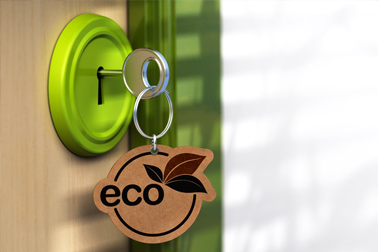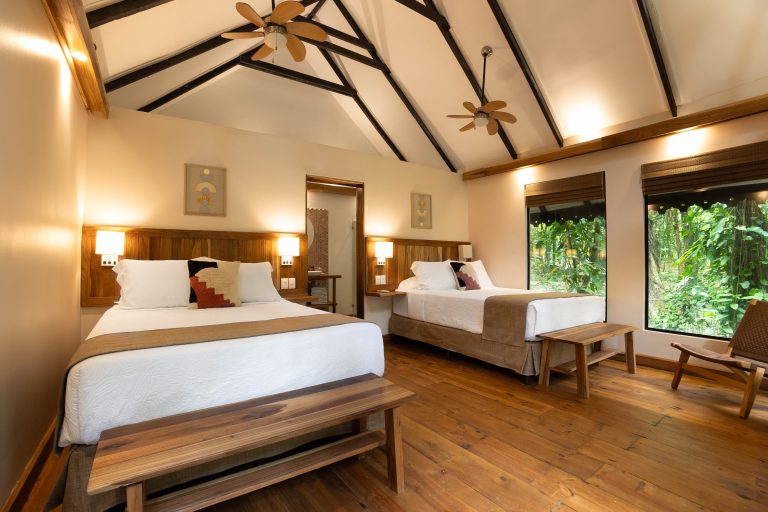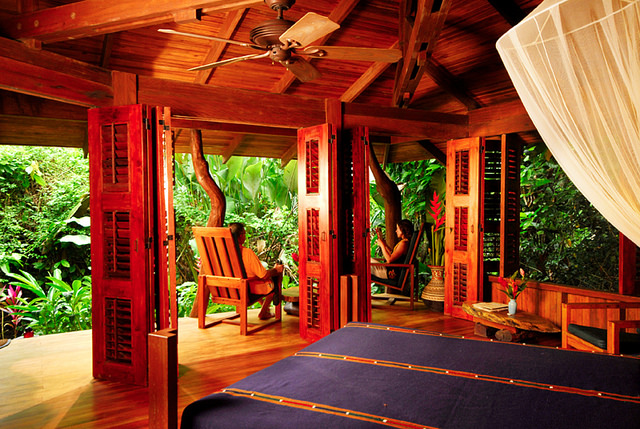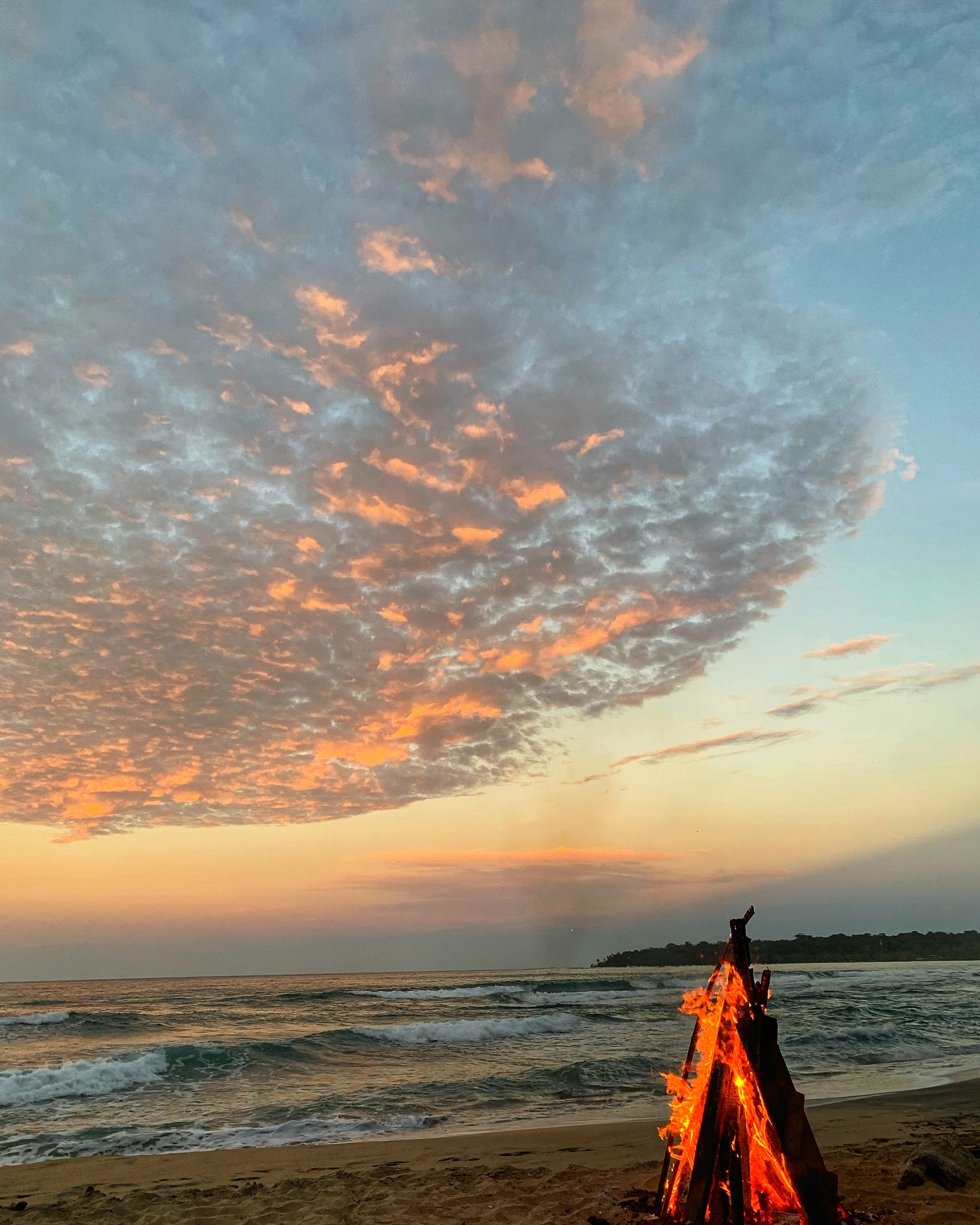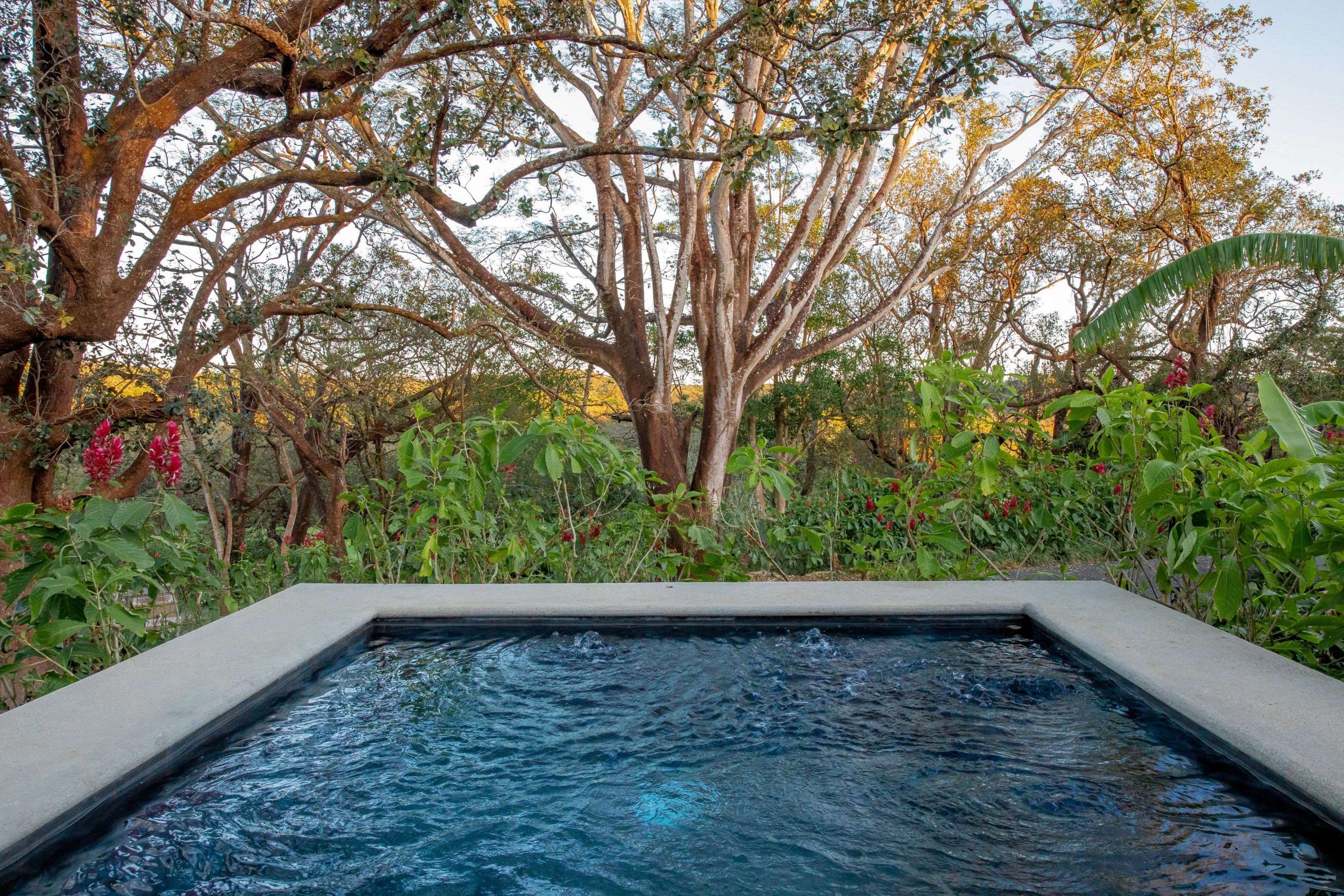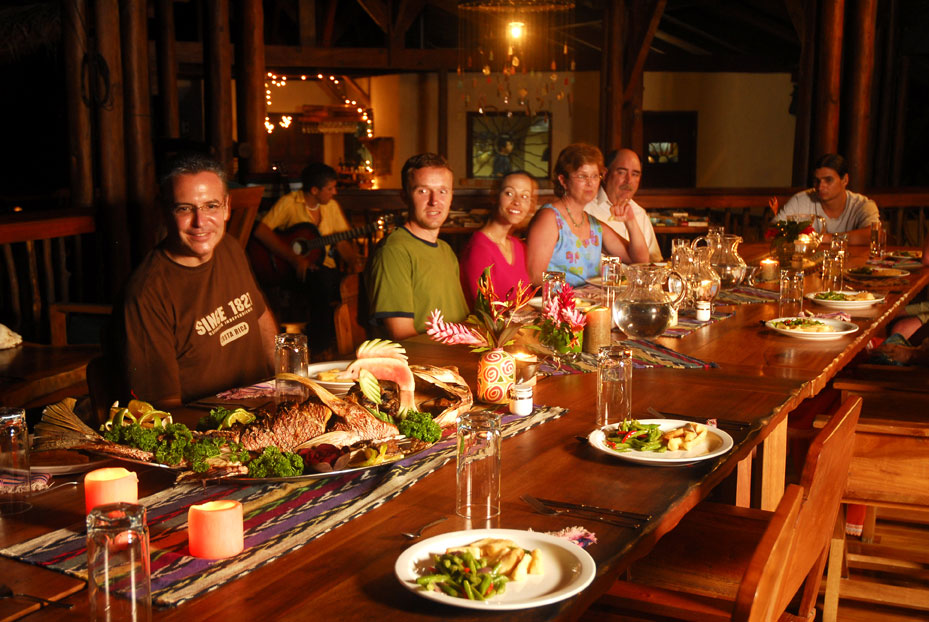 Do you like to work out in your hotel’s gym when you’re away? If you happen to be staying in Denmark’s Crowne Plaza Copenhagen Towers, keeping fit while traveling will help generate the hotel’s electricity and earn you meal vouchers in their restaurant. The flagship eco-hotel is the first hotel in Denmark to generate all of its power from renewable sources – solar panels, geothermal heating and cooling pumps, and stationary bicycles connected to generators which provide the hotel’s electricity. Guests can pedal for only 15 minutes or so and “earn” enough electricity wattage to score a free meal voucher, plus personally contribute to the planet.
Do you like to work out in your hotel’s gym when you’re away? If you happen to be staying in Denmark’s Crowne Plaza Copenhagen Towers, keeping fit while traveling will help generate the hotel’s electricity and earn you meal vouchers in their restaurant. The flagship eco-hotel is the first hotel in Denmark to generate all of its power from renewable sources – solar panels, geothermal heating and cooling pumps, and stationary bicycles connected to generators which provide the hotel’s electricity. Guests can pedal for only 15 minutes or so and “earn” enough electricity wattage to score a free meal voucher, plus personally contribute to the planet.
 This novel idea is the latest twist in the eco-friendly hospitality movement that not only benefits the hotel, but gets guests involved in a real-time personal way. Eco-consciousness as a buzzword has turned into a billion-dollar business ranging from everything from the hospitality and tourism industries to clothing, cosmetics, cars, cleaning products, and corporate philosophies.
This novel idea is the latest twist in the eco-friendly hospitality movement that not only benefits the hotel, but gets guests involved in a real-time personal way. Eco-consciousness as a buzzword has turned into a billion-dollar business ranging from everything from the hospitality and tourism industries to clothing, cosmetics, cars, cleaning products, and corporate philosophies.
In technology, you’ve got solar-powered laptops, bamboo iPhone cases, and now a new eco-friendly light bulb called LIFX LED that you can manipulate its color and brightness from your smartphone via WIFi. You can even match the light’s settings to the songs on your playlist. How geeky is that?
 Eco-friendly travel is one of the fastest growing sectors in the tourism industry worldwide, growing 10-15% annually. “Go Green” is the slogan you hear most often nowadays. Green efforts can be everything from simple water conservation measures (guests re-using linens and towels in hotels), using biodegradable cleaning products and recycling, to all-out 100% environmental construction. In the U.S., that would mean being certified by the Leadership in Energy and Environmental Design (LEED) program of the U.S. Green Building Council.
Eco-friendly travel is one of the fastest growing sectors in the tourism industry worldwide, growing 10-15% annually. “Go Green” is the slogan you hear most often nowadays. Green efforts can be everything from simple water conservation measures (guests re-using linens and towels in hotels), using biodegradable cleaning products and recycling, to all-out 100% environmental construction. In the U.S., that would mean being certified by the Leadership in Energy and Environmental Design (LEED) program of the U.S. Green Building Council.
Earth-conscientious travelers are more frequently seeking out eco-friendly lodging. Boutique hotels are at the forefront of this trend. The most common environmental practices include:
- Guest towel & linen re-use
- LED and compact fluorescent lighting to save energy
- Water-efficient toilets and showerheads
- Reduce waste output
- Reduce energy & water use
- Reduce carbon footprint
- Eliminate pollution
- No pesticides in the gardens
- Window films (like Huper Optik films) that reduce energy usage and protect furniture, carpets, paint, etc. against fading
 In ecotourism hotspot Costa Rica, Pranamar Villas is a leading boutique hotel for planet-conscious places to stay. The oceanfront holistic yoga-surf hotel on the Nicoya Peninsula’s top-rated Santa Teresa Beach isn’t just “greenwashed” (eco-friendly in advertising only). Owners and staff are committed to following a long list of environmental practices every day.
In ecotourism hotspot Costa Rica, Pranamar Villas is a leading boutique hotel for planet-conscious places to stay. The oceanfront holistic yoga-surf hotel on the Nicoya Peninsula’s top-rated Santa Teresa Beach isn’t just “greenwashed” (eco-friendly in advertising only). Owners and staff are committed to following a long list of environmental practices every day.
The luxury hotel cleans and reclaims its water used at the property to irrigate their organic gardens. A completely independent septic system recycles treated water that passes through a three-tank aerobic system using natural bacteria to clean the water, and then enters a drip irrigation system in the gardens which maximizes water usage.
 Sustainably farmed and recycled woods were used to create the hotel’s natural earth-friendly interiors for ecologically-constructed bungalows and villas. The elegantly designed accommodations offer tropical simplicity with plenty of windows and doors to open to sea breezes and enjoy nature. Granite stone tubs ringed by tropical gardens give an exotic touch to open-air bathrooms in the villas.
Sustainably farmed and recycled woods were used to create the hotel’s natural earth-friendly interiors for ecologically-constructed bungalows and villas. The elegantly designed accommodations offer tropical simplicity with plenty of windows and doors to open to sea breezes and enjoy nature. Granite stone tubs ringed by tropical gardens give an exotic touch to open-air bathrooms in the villas.
Pranamar’s lush tropical gardens are completely organic; they use no herbicides or pesticides on the property. Much of the vegetation is “edible” – fruits, vegetables and  herbs that supply the open-air restaurant with fresh, healthy cuisine. They grow mango, papaya, banana, starfruit, guanabana, passion fruit and Suriname cherries. During the dry season, melons and squashes underneath ornamental and fruit trees provide ground cover to help hold moisture. The herb and vegetable garden flourishes with mint, basil, oregano, rosemary, thyme, tarragon, turmeric, arugula, mustard greens, tomatoes, chili peppers, okra, cucumber and eggplant. The hotel’s composting system completes the food cycle by turning the restaurant’s organic waste into natural fertilizer.
herbs that supply the open-air restaurant with fresh, healthy cuisine. They grow mango, papaya, banana, starfruit, guanabana, passion fruit and Suriname cherries. During the dry season, melons and squashes underneath ornamental and fruit trees provide ground cover to help hold moisture. The herb and vegetable garden flourishes with mint, basil, oregano, rosemary, thyme, tarragon, turmeric, arugula, mustard greens, tomatoes, chili peppers, okra, cucumber and eggplant. The hotel’s composting system completes the food cycle by turning the restaurant’s organic waste into natural fertilizer.
All soaps, laundry detergent, cleaning supplies, and even guests’ amenity shampoos, conditioners and bath soaps are biodegradable. Energy-saving light bulbs and appliances reduce electricity usage. Even the free-form swimming pool is eco-conscious: it’s filled with salt-water, mean ing less chlorine and other chemicals.
ing less chlorine and other chemicals.
The difference is that Pranamar Villas’ owners, Susan Money, Greg Mullins and Stefano Allegri, created their hotel following a natural “Earth first” vision. They believe it is “important to consider the imprint we leave and the effects we have on our environment and planet.”
The business of ecotourism aside, here’s some food for thought for all of us:
“Our most basic common link is that we all inhabit this planet. We all breathe the same air. We all cherish our children’s future. And we are all mortal” – John F. Kennedy
By Shannon Farley



